A Killer Paradox (살인자ㅇ난감) is a South Korean crime thriller series released on Netflix on February 9, 2024. It is based on a webtoon of the same name by Kkomabi and the series was created by Lee Chang-hee and Kim Da-min. There are 8 episodes with a runtime of about 45-50 minutes.
The series chronicles the story of Lee Tang – an ordinary individual who, over time, transforms into a serial killer, drawing the attention and focus of the tenacious detective, Jang Nan-gam, who is relentless in bringing him to justice.
The cast of A Killer Paradox includes Choi Woo-shik as Lee Tang, Son Suk-ku as Jang Nan-gam, Lee Hee-joon as Song Chon, Jo Seok-hyeon as Kim Myeong-jin/Yeo Bu-il, Jung Yi-seo as Seon Yeo-ok, Hyun Bong-sik, Kim Yo-han as Roh-bin, Nam Jin-bok, Jo Seok-hyeon, Jun Hyun-Sook and several others.
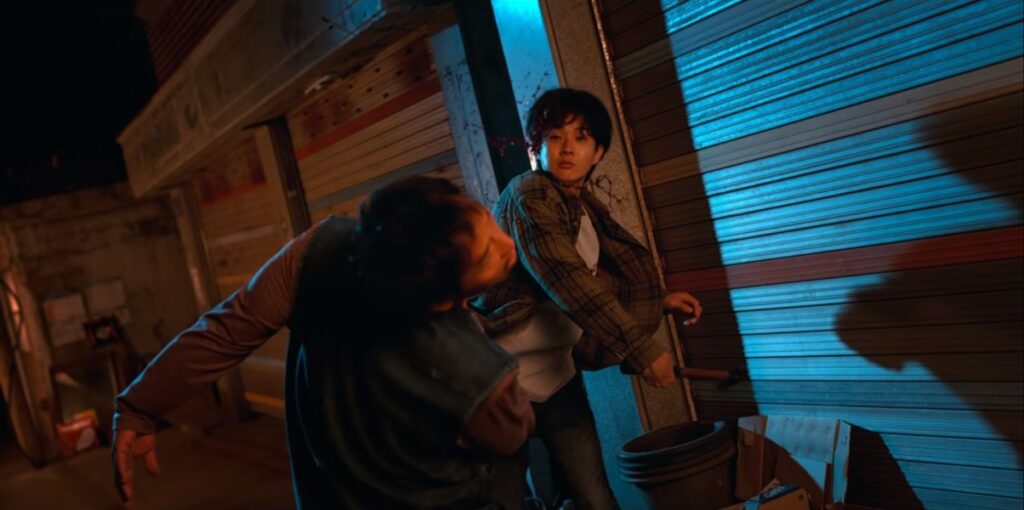
A Killer Paradox Review
Lee Tang, a man in his twenties, was discharged from the army six months ago. He is currently struggling and lacks direction in life. Though he dreams of visiting Canada, the trip seems unattainable. Lee works at a convenience store where he earns very little and still relies heavily on his parents for support. While heading home from work one evening, Tang is assaulted by one of the drunk customers. This incident became the tipping point for Tang, who had endured years of bullying during his high school years.
In self-defence, Tang fights back fiercely, unintentionally causing the death of his assailant. Believing that no one had witnessed the event, Tang is consumed by guilt. He contemplates surrendering himself to the authorities, fearing that he will eventually be discovered. However, Tang’s guilt takes an unexpected turn when he learns that his victim is actually a notorious serial killer.
It seems as though Tang may escape any consequences for his actions, but his plans are foiled by the diligent Detective Jang Nan-gam, who refuses to let the case go due to his instinct that something’s missing. It remains uncertain whether Jang suspects Tang’s involvement, and the uncertainty intensifies when Tang finds himself compelled to kill once again.
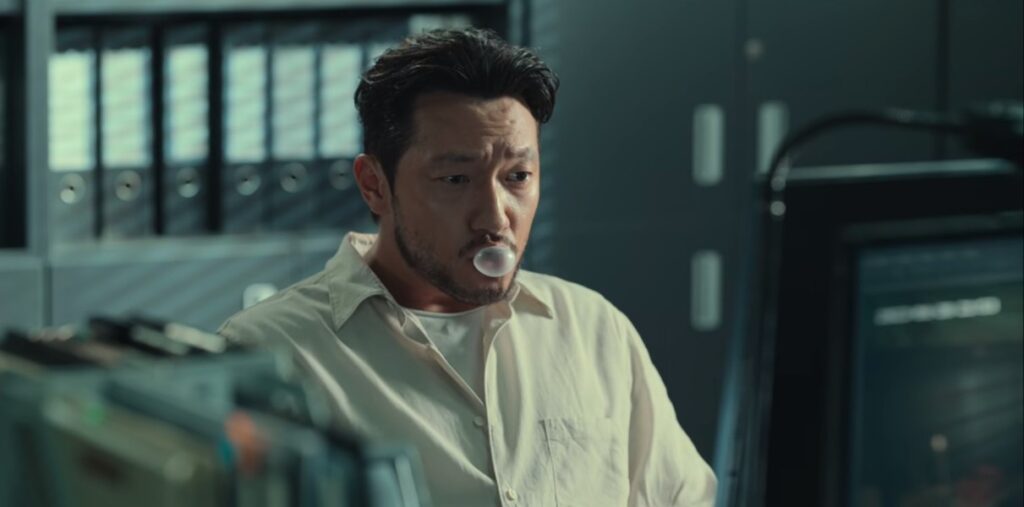
It’s not like he feels the urge to kill, once he has accidentally experienced it but the situation leaves him no choice but to act on his violent impulses. However, what’s unique is all of Tang’s victims are revealed to be criminals in one way or another – throwing everyone into a paradox if he is a serial killer or a man seeking social justice on behalf of the wronged. As Lee Tang realises his ability to kill people without guilt, we realise that there was something dark and peculiar about him from the start, meant to burst out in a way, someday.
Also Read: One Day Review: Leo Woodall and Ambika Mod Bring a Vulnerable Touch to the Story
The first striking thing about the show is how different camera styles are used to either focus on something particular or show the impact of the character’s actions. Especially in the fighting/killing scenes, the violent action is shown in slow motion where you can analyse each person’s expressions and oftentimes, instead of cutting the scenes between different camera angles, the same camera is panned to other characters or surroundings, giving it a feel of one take or giving you an observational perspective.
In a way, the audience really is just an observer, suspecting everything. Even though we know that Lee Tang hasn’t killed anyone intentionally, most of the time there’s a thought in the back, that he is the mastermind behind everything (a seasoned killer) and deceiving us all along with Jang Nan-gam. In the case of the detective, the play of words with his name is quite interesting. Whenever he makes light of a situation, he uses his name as an excuse because ‘Jang Nan-gam’ means something to play with/playful. But as the story progresses, he is referred to as just ‘Nan-gam’, which then means being in a difficult/sticky situation, which is his reality as he isn’t able to catch the culprits.
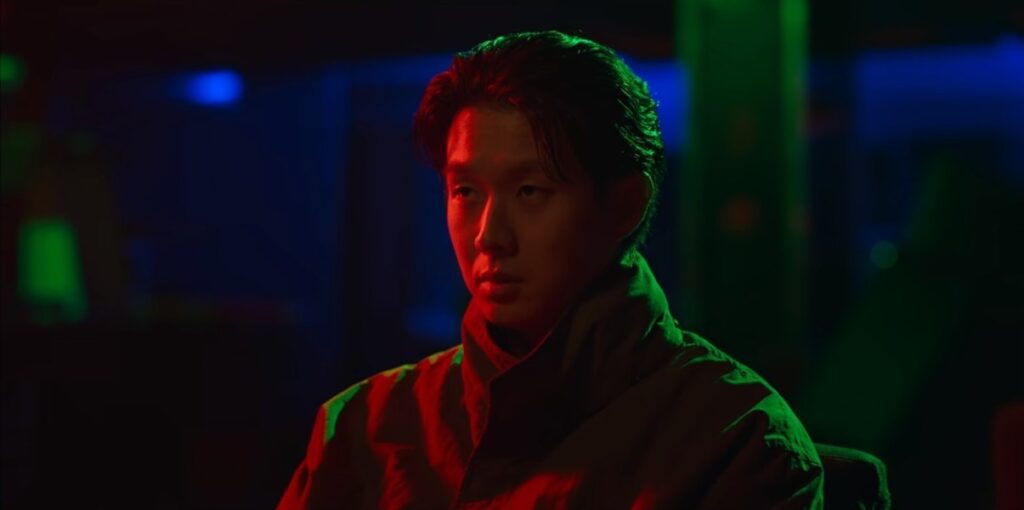
Similarly, another character who helps Tang in his darkest times is named as Roh-bin. Too similar to the popular sidekick ‘Robin’ and coincidentally, the character aspires to be Lee Tang’s sidekick as well, helping him in any way he can. Another stylistic element that pulls us inside their world is playing out Tang’s thoughts or fears visually on the screen. This gives us a perspective on what kind of a person he is and actually interesting to see rather than a simple dialogue or background voice.
From episodes 1-4, there’s a thrill and unassuming humour that makes even grim situations a bit witty. But the story deepens from there on with the entry of Lee Hee-joon as Song Chon. Amidst the cat-and-mouse chase of the duo, Song Chon turns out to be the hidden part of the equation. As the show title suggests, it’s one big paradox. For every good character, there’s its bad/negative counterpart and vice versa. Especially Song Chon’s entry signifies it by showing that a person like Lee Tang is not an anomaly but at the same time, he is very different from him. Despite both being in the grey area, there’s still a distinction between who’s good or bad.
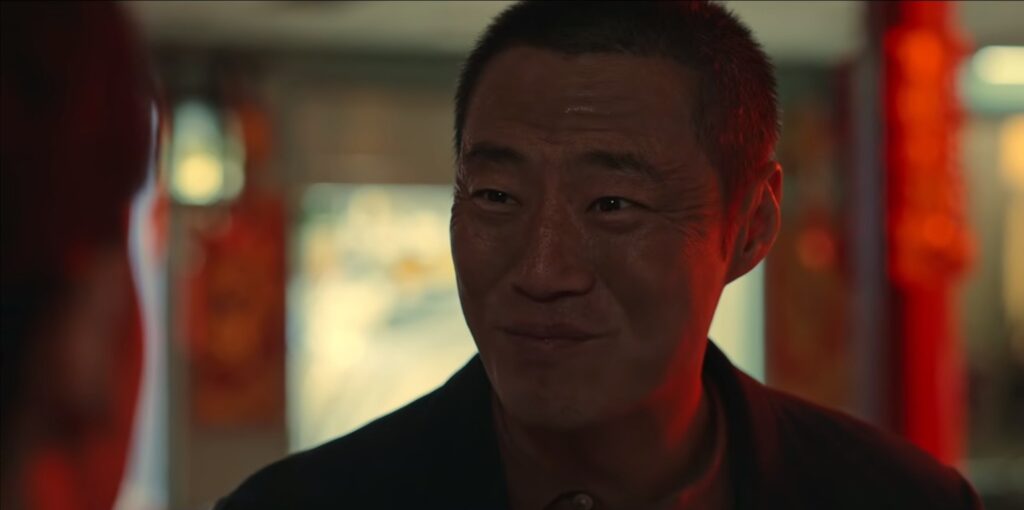
In an overview, A Killer Paradox is not necessarily a revenge thriller but a social drama, which questions the distinction between acts of goodness and crime. Is the world black & white or covered with shades of grey? Is a person truly evil if they are seeking justice for social good or is a person truly just, because they got the power to serve it? However, one thing is for sure – each episode is packed with twists and revelations that will keep you hooked till the last minute. And just when you think that you might have gotten the gist of it, believe me, there’s always something you would have never guessed.
Also, with a stellar cast, it’s needless to say that the performances are phenomenal but it seems like characters like Lee Tang come as a second nature to actor Choi Woo-shik. The lost, clueless traits with naivety are innate charms of his that make the character his own. While Son Suk-ku with his tough exterior but a complex and warm heart is how he managed to make everyone swoon in shows like My Liberation Notes. Between them, Lee Hee-joon brings the murderous craziness, driving both of them to their wits end. It’s remarkable to see how he imbibes the mannerisms of an old person without exaggerating or looking fake.
Rating: 4/5
A Killer Paradox is available for streaming on Netflix.
Also Read: Upgraded Review: Camila Mendes Deceives Her Way Up the Social Ladder
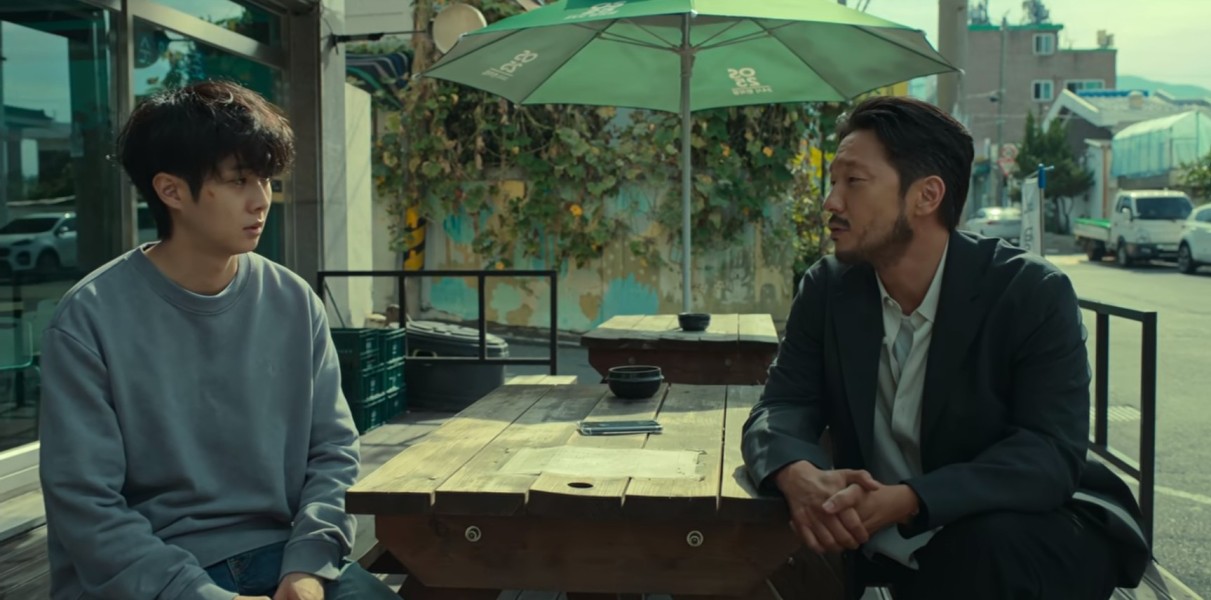
Leave a Reply